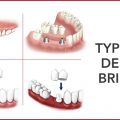Why Are Regular Visits to Dentists So Important?

Everyone who has experienced a toothache at least once will agree that it is better to treat any diseases of the oral cavity in advance and avoid critical situations.
The availability of information often introduces certain features in the relationship between the doctor and the patient. You can get information about dental diseases and methods of their treatment from various sources, which often causes even greater doubts and growing fears. This causes your visit to the dentist to be postponed for some time.
Why Do You Need a Preventive Check?
If you really want to have healthy teeth and at the same time not spend huge amounts of money on their treatment, then you need to understand that dentists are an important part of our lives who give us a radiant smile and health. We have been taught to think differently and treat our teeth as something insignificant, as if without them, nothing will change in life, and their loss will not affect a person's general health. Unfortunately, it is not true. After all, the main goal of a dentist, like any other doctor, is not just to cure the disease but to prevent it.
Why should you go to the dentist when it doesn’t hurt yet?
- A timely visit to the dentist will help to warn you in advance of the problem and help to eliminate it at the very beginning. Sometimes in the initial stages of tooth decay you just need to adjust the diet and use a mouthwash or toothpaste to avoid tooth filling procedure and keep it healthy, but also it will help you prevent serious dental diseases that lead to severe toothache or tooth removal.
- Bad breath, inflamed gums, and loose teeth are all preventable. In the early stages, periodontal disease is treated quite easily and inexpensively, but only a dentist can diagnose the onset of the disease;
- The dentist can detect signs of other diseases in the early stages, including hypertension, diabetes, HIV, herpes, etc.;
- A good example for your children and the formation of the right standards. By teaching your child (including from your own experience) to visit the dentist at an early stage, you not only help them not to be afraid of the dentist (when there is an association with pain), but also teach them to take care of themselves and their health.
- Regular visits to the dentist will save you from losing your work time later on. Studies have shown that poor dental health significantly reduces a person's productivity. Toothache can cause a person to miss work. Secondary infections, which are often caused by neglect of one's health, lead to serious illnesses. Usually, no one is immune from toothache, but regular visits to the dentist reduce this risk to zero.
Don't wait for a toothache to come for you. Spending a few minutes every six months for a follow-up examination at the dentist will help you save months of a painless and happy life.
How Often Should You Visit a Dentist?
The first step is to choose a dentist that you feel comfortable with. The next step is to book an appointment before you have dental problems.
During the first visit, the doctor will get acquainted with your medical record and the condition of your teeth. They will also talk about proper oral care and , prescribe an x-ray or perform other necessary manipulations if necessary.
If you visit the dentist regularly, most visits will be preventive check-ups that will help you keep your teeth healthy and clean, as well as prevent the development of diseases.
Timely diagnosis of teeth and oral cavity allows for avoiding painful sensations and complex and expensive treatment at an advanced stage. Many dentists recommend visiting them for dental examinations at least once every 6 months. However, if you have problematic teeth or diseases that require constant monitoring, then a visit to the dentist should occur more often.
Other articles and publications:
Articles and publications of other companies:
- +1 (646) 270-9836
- Long Island City
- grantny.com












